Life
Sign up for our newsletter
We summarize the week's scientific breakthroughs every Thursday.
-
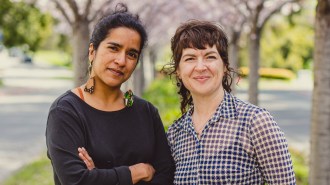 Animals
AnimalsThese researchers are reimagining animal behavior through a feminist lens
Ambika Kamath and Melina Packer are working to overturn biased, outdated views in biology.
-
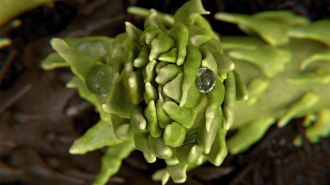 Life
LifeA 407-million-year-old plant’s leaves skipped the usual Fibonacci spirals
Most land plants living today have spiral patterns involving the famous Fibonacci sequence of numbers. But an extinct, ancient plant did not.
By Skyler Ware -
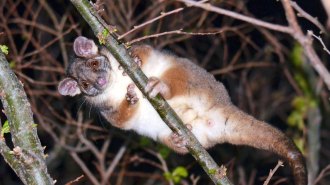 Life
LifeIn Australia, mosquitoes and possums may spread a flesh-eating disease
Field surveys show that genetically identical bacteria responsible for a skin disease called Buruli ulcer appear in mosquitos, possums and people.
-
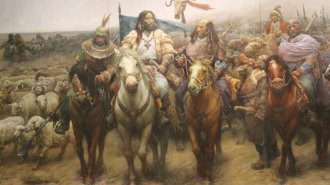 Archaeology
ArchaeologyHow Asia’s first nomadic empire broke the rules of imperial expansion
New studies reveal clues to how mobile rulers assembled a multiethnic empire of herders known as the Xiongnu more than 2,000 years ago.
By Bruce Bower -
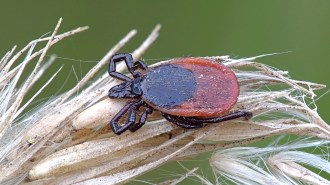 Animals
AnimalsStatic electricity can pull ticks on to their hosts
Ticks brought near objects with a static charge frequently get pulled to those surfaces, a new study finds, suggesting one way the bugs find hosts.
By Soumya Sagar -
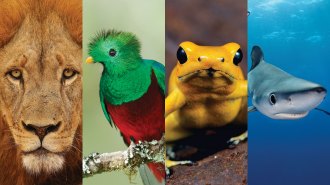 Science & Society
Science & SocietyHumans exploit about one-third of wild vertebrate species
An analysis of nearly 47,000 vertebrate animal species reveals that using them for food, medicine or the pet trade is helping push some toward extinction.
By Sid Perkins -
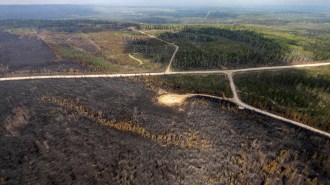 Climate
ClimateThe snow forest of North America may be about to shrink
From 2000 to 2019, the boreal forest’s northern boundary didn’t move while southern tree cover thinned due to climate change, wildfires and logging.
By Nikk Ogasa -
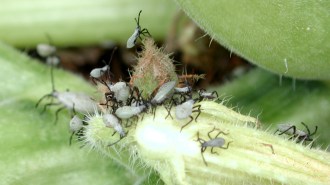 Life
LifeYoung squash bugs seek out adults’ poop for an essential microbe
Squash bug nymphs don’t rely on their parents to pick up a bacterium they’d die without. They find it on their own.
-
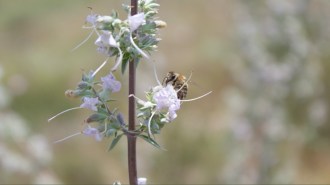 Life
LifeFlowers pollinated by honeybees make lower-quality seeds
Honeybees are one of the most common pollinators. But their flower-visiting habits make it harder for some plants to produce good seeds.
By Jude Coleman -
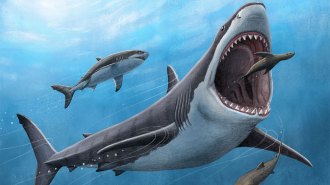 Paleontology
PaleontologyMegalodon sharks may have become megapredators by running hot
O. megalodon sharks were warm-blooded megapredators. But colder-blooded great white sharks may have had an evolutionary edge when food sources dwindled.
-
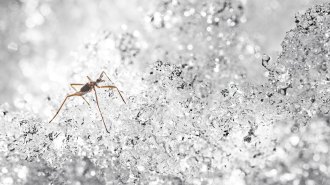 Animals
AnimalsA grisly trick helps snow flies survive freezing: self-amputation
When a snow fly’s leg begins to freeze, a quick amputation can prevent ice from spreading, keeping the cold-hardy insect alive.
By Meghan Rosen -
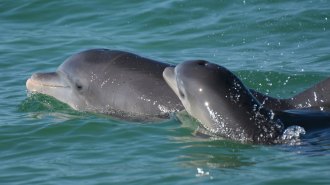 Animals
AnimalsBottlenose dolphin moms use baby talk with their calves
When their babies are near, bottlenose dolphin moms modify their signature whistles, similar to human parents speaking in baby talk.